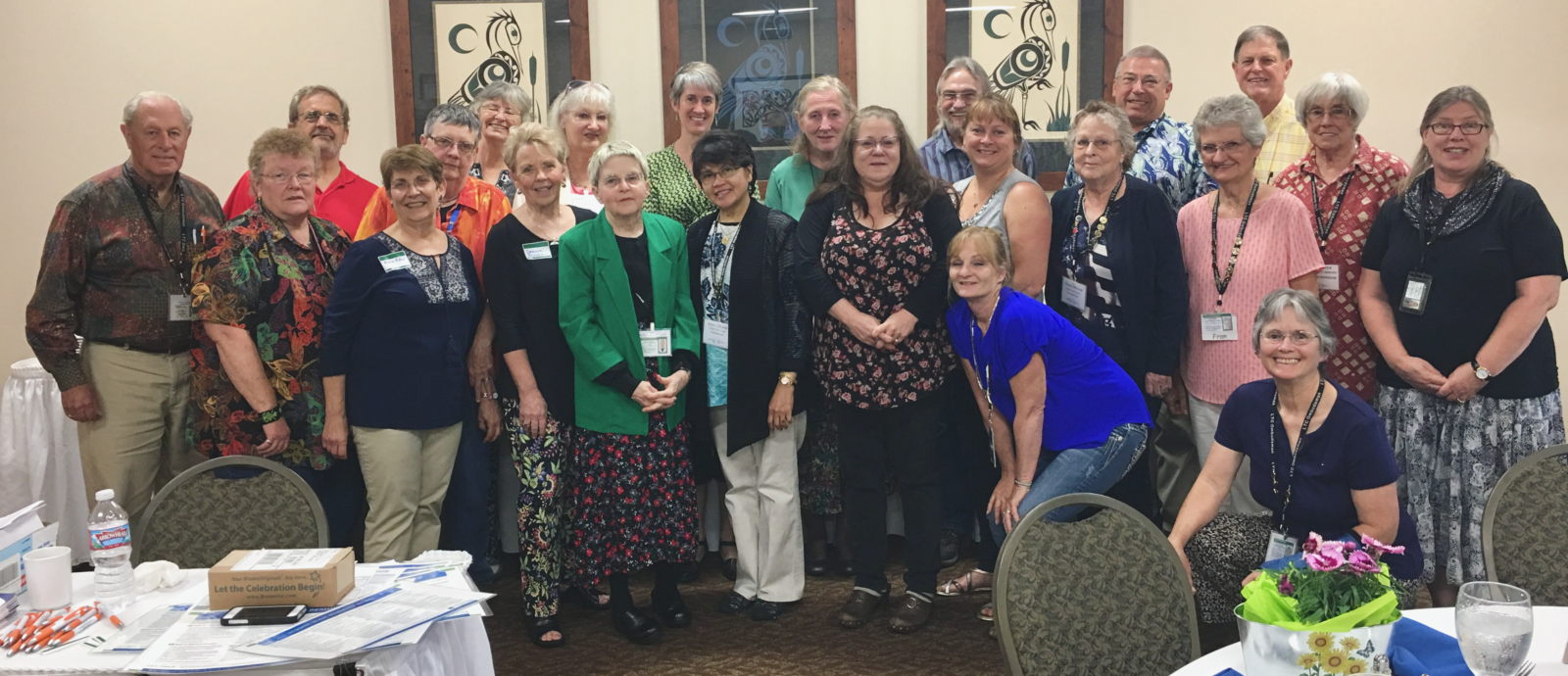Volunteer

There are openings in Washington for volunteer Certified Ombuds to advocate for residents who are aging and disabled living in long-term care facilities. Volunteers help to ensure the rights, dignity and quality of care for residents through complaint investigation, resolution, and advocacy for improvement in resident care. This opportunity comes with flexible hours, training, support, new relationships, and the satisfaction of helping others. Volunteer ombuds are the backbone of the Washington State Long-Term Care Ombudsman Program! If you are interested in joining this extraordinary group of individuals working to protect Resident Rights, please fill out the form below, or call your local long-term care ombudsman program. A program representative will contact you about the next steps in your application process.
Volunteer Interest Form
Certified Long-Term Care Volunteer Ombuds
Description and Purpose:
A certified volunteer in the Washington State Long-Term Care Ombudsman Program serves persons who reside in long-term care by providing them with information about their rights and available resources. Ombuds also obtain factual information about residents’ complaints, assist with protecting their rights, and otherwise assure that they receive fair treatment from service providers.
Responsibilities and Duties:
- At least weekly, visit with residents living in the assigned long-term care facility. More frequent visits are desirable and important.
- Provide individual information to residents living in the assigned long-term care facility about their rights, community services available to them, laws, regulations, and standards that govern long-term care facilities, and good health and safety practice.
- When a resident living in the assigned long-term care facility complains or otherwise discusses a violation of their rights, a law, regulation, or standard:
- Obtain the resident’s consent to discuss the complaint with the service provider,
- Review records, etc., if needed to investigate the complaint.
- Determine the facts of the alleged violation.
- Make a determination that the complaint was/was not founded.
- When the complaint is founded, work with the resident and service provider to resolve the complaint.
- When the complaint is not resolved, refer to the complaint, together with all documentation, to the Regional Long-Term Care Ombuds under whose direction you work. With the resident’s consent, refer the complaint to the appropriate regulatory agency if necessary.
- Assist residents living in the assigned long-term care facility and their families and friends to become more actively involved in their care and treatment by assisting in developing and participating in resident councils and family support groups.
- Attend monthly in-service training sessions.
- Submit monthly activity reports.
- Assist in developing Resident and Family Councils.
Authority:
Upon successful completion of a 36-hour training program, the Washington State Long-Term Care Ombudsman certifies volunteer ombuds.
Supervision:
The volunteer ombuds’ routine activities and responsibilities are supervised by the regional long-term care ombuds, who have delegated authority from the state long-term care ombuds to operate the regional program. Final authority over the program rests with the state long-term care ombuds.
Evaluation:
Volunteer ombuds are evaluated on job performance by the regional long-term care ombuds three months after their first day of work with residents of their assigned long-term care facility and annually. Annual re-certification will be based on satisfactory performance reports.
Requirements:
- Volunteer candidates must be at least 18 years or older with reliable transportation.
- A sincere interest in promoting the well-being and protecting the rights of people in long-term care.
- An ability to work cooperatively with the people who live in long-term care facilities, the Regional Long-Term Care Ombuds, and long-term care providers.
- Ability to discover facts that result in complaints and impartially and objectively determine whether complaints are founded or unfounded.
- Acceptance of, and adherence to, the Volunteer Ombuds Code of Ethics and Standards.
- The successful completion of the Washington State Long-Term Care Volunteer Ombudsman Programs Training and the State Ombuds Certification as a volunteer.
- Commitment to provide at least four hours per week of volunteer ombuds service per year, and commitment to follow through on specific complaints once begun, even when the time demands are greater.
- Free of conflicts of interest as outlined in WAC 365-18-040
Restrictions:
All Ombuds must be free from the following conflicts of interest:
- Cannot be employed by, manage, or work as a paid consultant or independent contractor for a long-term care facility, currently or within the last year.
- Ombuds or a member of their immediate family cannot have significant ownership or investment interest in a long-term care facility or service, currently or within the past year.
- Cannot have direct involvement in the licensing or regulation of a long-term care facility or long-term care service while certified as ombuds or within the past year.
- Cannot solicit or receive gifts, money, or estate property from a resident unless the resident is a relative.
- Cannot be assigned to a long-term care facility where the ombuds or a member of their immediate family is a resident.
- Shall not use this position for any financial benefit, direct, indirect, or implied.
- Ombuds shall not conduct or engage in political or religious activities at the long-term care facility to which they are assigned.
- Ombuds cannot have direct personal involvement in providing involuntary services or involuntary commitment of a resident.
